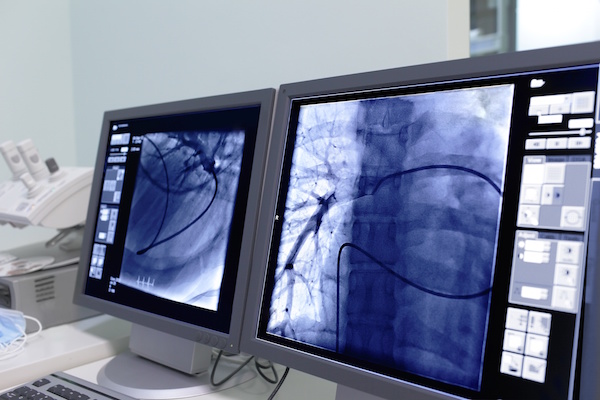
MONDAY, Nov. 9 (HealthDay News) — After a lumpectomy, women with very dense breasts have a higher risk of cancer recurrence in the affected breast, a new study shows.
Breast density has already been linked with an increased risk of developing breast cancer, and experts have suspected that very dense breasts may also be associated with an increased risk of cancer recurrence at the site of the original cancer after lumpectomy.
The Canadian study, which involved a 10-year follow-up and is published online Nov. 9 and in the Dec. 15 print issue of Cancer, suggests those suspicions are correct.
“This trial is interesting because it is over such a long period of time,” said Dr. Christy Russell, an associate professor of medicine at the University of Southern California Keck School of Medicine and spokeswoman for the American Cancer Society. “It’s a very interesting study saying if you don’t radiate after lumpectomy, density plays a large role in having a recurrence in the same breast.”
Currently, radiation is typically given after breast-conserving surgery, or lumpectomy.
But not all of the 335 patients in the latest study had radiation after lumpectomy for their invasive breast cancer. Led by Dr. Steven Narod, a professor at the Dalla Lana School of Public Health, Women’s College Research Institute, University of Toronto, the researchers evaluated the medical records of the women, who had undergone lumpectomy from 1987 through 1998. They followed-up with the women for 10 years to see which women experienced a recurrence of the cancer in the same breast.
The researchers categorized the women into three groups depending on breast density: low, intermediate or high. The average age for each group was: 63 years in the low-density group; 58 in the intermediate group; and 55 in the high-density group.
Overall, experts estimate that women with invasive breast cancer treated with breast-conserving surgery and radiation — the current standard of care — have a 10 percent risk of recurrence at the same site at 10 years.
In the new study, women with the highest density had the highest risk of recurrence, the researchers found. Over the 10-year follow-up, those in the highest breast-density category had a 21 percent chance of cancer coming back in the same breast, while those who had the least-dense breasts had just a 5 percent chance.
Not all the women in the study had radiation after the lumpectomy. When Narod’s team compared recurrence between women who had radiation and those who didn’t, overall, 22 percent of those who didn’t receive radiation had recurrence, but 10 percent of those who did receive radiation had recurrence.
The women with highly dense breasts who didn’t receive radiation had a 40 percent risk of recurrence, but none of the 34 women with low breast density and no radiation treatment had recurrence at the same site.
The results are for local recurrence, “not for distant recurrence or death,” Narod noted.
Next, Narod hopes to repeat the findings and “to find out what it is about breast density that explains this phenomenon.”
The study results raise two issues, according to Russell. “If you have a lumpectomy and you have very low [breast] density, the question is, ‘Can you avoid radiation?’
“The other point [raised by the new findings] is that there are newer techniques of radiation therapy coming along, much more localized [than traditional whole-breast radiation],” she said. Women with high-density breasts may want to strongly consider whole-breast radiation, Russell suggested.
Women in the study all had invasive breast cancer, Russell added, so the findings don’t apply to earlier, noninvasive cancers.
Most women probably don’t know about the density of their breasts, Narod said. They can ask their physician, although more study is needed on the association, he said.
More information
To learn more about breast density, visit the American Cancer Society.

